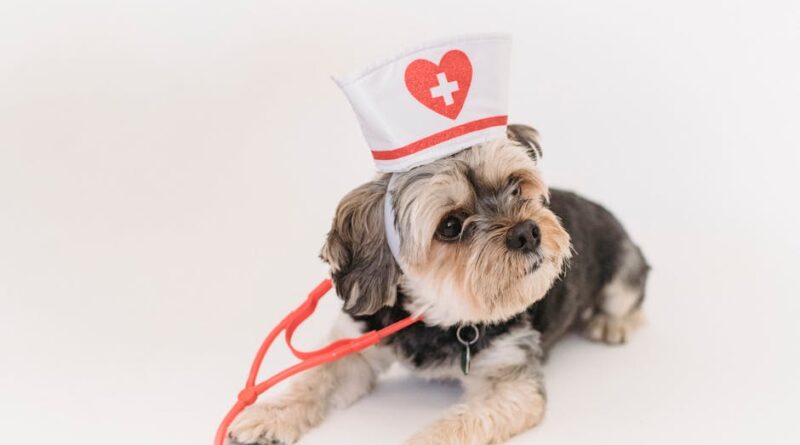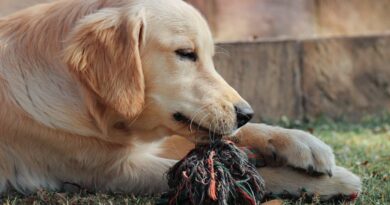The Role of Diet in Small Dog Health
Small dogs hold a special place in our hearts with their adorable antics, playful demeanor, and unwavering loyalty. As pet owners, we strive to provide the best care for our furry companions, including ensuring they have a healthy diet. The role of diet in small dog health is of utmost importance, as it directly impacts their overall well-being, energy levels, and longevity. In this comprehensive guide, we will delve into the various aspects of how diet influences the health of small dogs, from the nutrients they need to common dietary pitfalls to avoid. Let’s explore the intricate relationship between diet and small dog health.
The Basics of Canine Nutrition
Just like humans, small dogs require a balanced diet to thrive. Essential nutrients such as protein, carbohydrates, fats, vitamins, and minerals play a crucial role in their growth and development. Protein is particularly important for building and repairing tissues, while carbohydrates provide energy for their daily activities. Fats are essential for maintaining healthy skin and coat, as well as supporting various bodily functions. Vitamins and minerals, in trace amounts, are necessary for overall health and well-being.
When selecting a commercial diet for your small dog, it’s essential to look for formulations specifically designed for small breeds. These diets take into account the unique nutritional needs of small dogs, including their higher metabolic rate and potential for dental issues. Avoid feeding your small dog food that is meant for larger breeds, as they may not provide the right balance of nutrients.
The Impact of Diet on Small Dog Health
The diet you feed your small dog can have a significant impact on their health and longevity. A balanced diet that meets their nutritional requirements can help prevent common health issues such as obesity, dental problems, and digestive issues. On the other hand, a poor diet lacking in essential nutrients can lead to deficiencies, weakened immune system, and a range of health problems.
Obesity is a growing concern among small dogs, as excess weight can put strain on their joints and organs, leading to a host of health issues. Feeding your small dog a diet that is high in quality protein and low in fillers and empty calories can help maintain a healthy weight. Additionally, regular exercise is essential for keeping small dogs fit and preventing obesity.
Common Dietary Pitfalls to Avoid
When it comes to feeding your small dog, there are several common dietary pitfalls that pet owners should be aware of. One of the most significant mistakes is overfeeding, which can lead to obesity and other health problems. It’s essential to follow feeding guidelines provided by your veterinarian or pet food manufacturer and monitor your dog’s body condition to ensure they are at a healthy weight.
Another common mistake is feeding table scraps or human food to small dogs. While it may be tempting to share your meal with your furry friend, many human foods are toxic to dogs and can cause serious health issues. Stick to feeding your small dog a high-quality commercial diet that is specifically formulated for their nutritional needs.
Choosing the Right Diet for Your Small Dog
With so many options available on the market, choosing the right diet for your small dog can be a daunting task. It’s essential to do your research and select a high-quality, reputable brand that meets your dog’s nutritional needs. Look for diets that are made with real meat as the first ingredient, free from artificial additives, and tailored to the unique needs of small breeds.
If you’re unsure about which diet is best for your small dog, consult with your veterinarian. They can provide valuable guidance based on your dog’s age, size, activity level, and any existing health conditions. Your veterinarian may recommend a specific diet to address your dog’s individual needs and ensure they receive the right balance of nutrients.
Expert Opinions
We spoke to Dr. Sarah Lopez, a veterinarian with over 10 years of experience in small animal nutrition, to get her expert opinion on the role of diet in small dog health. According to Dr. Lopez, “A balanced diet is essential for small dogs to maintain optimal health and prevent common health issues. It’s important to feed a diet that is appropriate for their size, age, and activity level to ensure they receive the right nutrients.”
Dr. Lopez recommends choosing a high-quality commercial diet that is specifically formulated for small breeds and avoiding feeding table scraps or human food, which can be harmful to dogs. She also emphasizes the importance of regular veterinary check-ups to monitor your small dog’s weight, body condition, and overall health.
Conclusion
In conclusion, the role of diet in small dog health cannot be overstated. A balanced diet that meets their nutritional needs is essential for maintaining optimal health, preventing common health issues, and promoting longevity. By choosing a high-quality commercial diet that is tailored to the unique needs of small breeds, avoiding common dietary pitfalls, and seeking guidance from your veterinarian, you can ensure that your small dog enjoys a healthy and happy life.
Remember to monitor your small dog’s body condition, provide regular exercise, and offer plenty of love and attention to support their overall well-being. By making informed choices about your small dog’s diet and health, you can help them live their best life and be a cherished companion for years to come.




